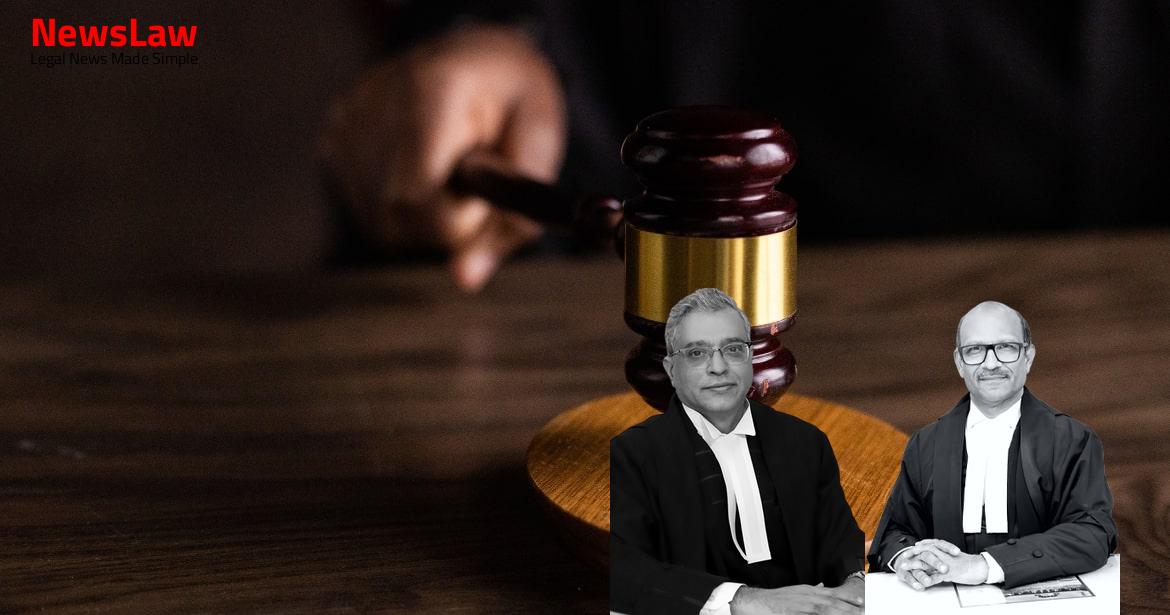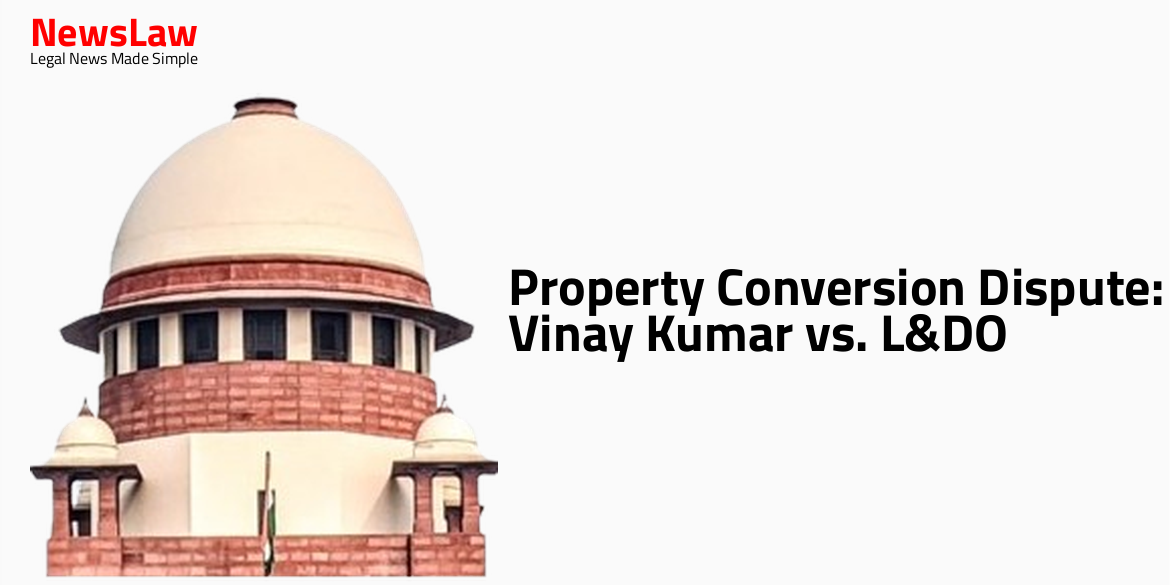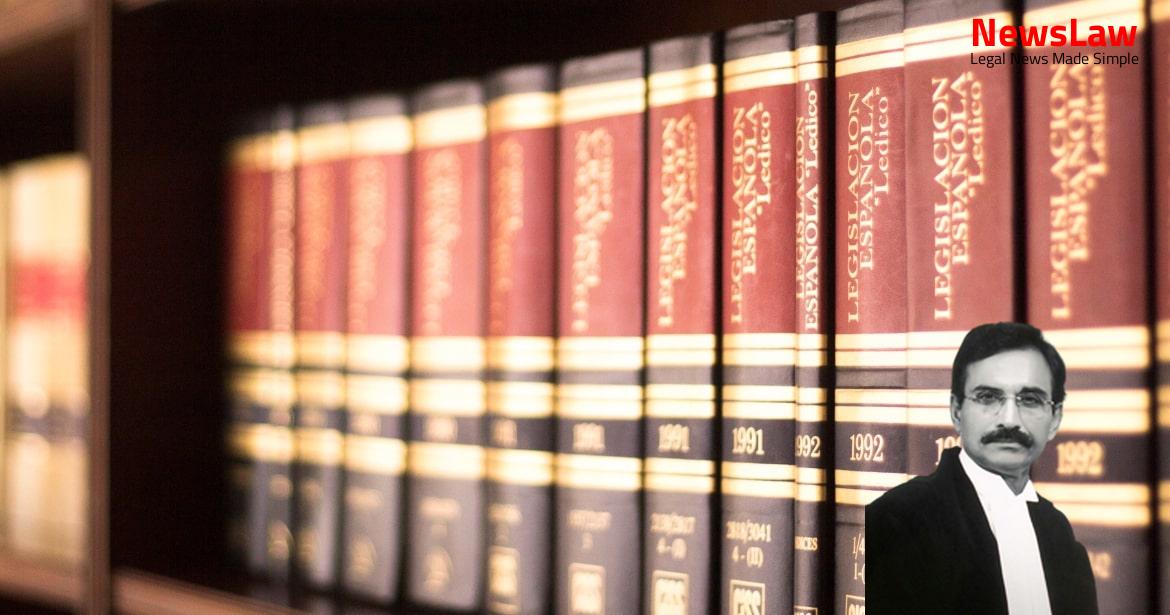In a significant legal case, the Supreme Court of India has rendered a judgment emphasizing the importance of adhering to the principles of natural justice. This ruling highlights the fundamental rights of individuals in legal proceedings and ensures fair treatment for all parties involved. Stay tuned to learn more about the implications of this ruling on future cases.
Facts
- The appellant submitted a reply to the notice issued by the Circle Officer regarding long pendency of investigations assigned to him.
- The Superintendent of Police issued a communication directing an adverse entry in the appellant’s service book due to failure in completing investigations within specified time frames.
- The Additional Chief Secretary of Uttar Pradesh condemned the appellant for negligence and selfishness in duties, leading to a censure penalty.
- The High Court dismissed the appellant’s writ petition challenging the censure entry.
- The Division Bench of Allahabad High Court also dismissed the intra-Court writ appeal filed by the appellant.
- The appellant’s counsel argued that no opportunity to show cause was given before imposing the penalty of censure.
- The Addl. Director of Police reported Mr. Sanjay Kumar for lack of interest in investigation disposal, leading to adverse actions.
- The appellant’s reply was deemed unsatisfactory by senior police officials.
Also Read: Supreme Court Judgment: Disputed Auction Sale of Society’s Property
Arguments
- The High Court did not consider the main assertion of the appellant in the right perspective.
- The writ petition was dismissed without the State’s reply being taken on record, leaving the appellant’s assertions uncontroverted.
- The order and communication by the Superintendent of Police breached the Uttar Pradesh Police Officers of the Subordinate Ranks (Punishment and Appeal) Rules, 1991.
- The decision suffered from a lack of adherence to the principles of natural justice.
- Rule 5 read with Rule 14(2) of the Rules, 1991 was cited, emphasizing that no written notice was issued to the appellant before being penalized with censure.
- The learned Standing Counsel for the State vehemently opposed the appellant’s submissions.
- The counsel for the respondents argued that the decision to record the censure entry was not taken without due process or natural justice.
- The Chief Minister of Uttar Pradesh discussed law and order during a review meeting with Home Department officials, ensuring investigations were being conducted lawfully.
Also Read: Seniority Dispute: Supreme Court Decision on Industrial Establishment Rules
Analysis
- The Superintendent of Police has the authority to award punishments to Inspectors and Sub-Inspectors as mentioned in the rules.
- Reserve Inspector, Inspector of Station Officer can impose drill and fatigue duty on constables under their charge for up to three days, with an obligation to inform the Superintendent of Police promptly.
- The question at hand is whether the direction to record censure in the appellant’s service book adheres to natural justice principles and aligns with the Rules of 1991.
- The relevant rules from the Rules of 1991 outline major and minor penalties that can be imposed on Police Officers for valid reasons.
- Procedures for awarding major and minor punishments are detailed in Rule 5 of the Rules, 1991.
- Various authorities within the police department hold the power to administer punishments as per the Rules of 1991, with limitations based on rank and tenure.
- The actions taken regarding the appellant’s censure entry must comply with the stipulated rules and principles of natural justice.
- The Additional Chief Secretary, Home (Police) issued an order on 16 November, 2021, noting the appellant’s gross negligence, indifference, and selfishness in performing duties.
- The report identified three worst-performing Investigating Officers, including the appellant.
- Rules 5, 14, and 7 of the Rules, 1991 outline the procedures and penalties applicable to Police Department employees.
- The appellant was censured based on Rule 4(1)(b), and the process for minor penalties was followed as per Rules 5(2) and 14(2).
- The Additional Chief Secretary’s order was based on a detailed report and the appellant’s explanation, concluding that he showed gross negligence, indifference, and selfishness in his duties.
- The censure entry was correctly directed by the competent Superintendent of Police as per Rule 7(2) of the Rules, 1991.
- The High Court rejected the appellant’s petition and appeal against the censure entry, finding no error in the decision.
- The appeal lacked merit and was dismissed without costs.
- The appellant’s explanation regarding pending cases was considered, but the censure entry was upheld based on the established rules and facts.
- The appellant’s claim of non-adherence to principles of natural justice was deemed not tenable by the court.
Also Read: Landmark Judgment: Supreme Court’s Decision on Further Investigation Application
Case Title: SUB INSPECTOR SANJAY KUMAR Vs. THE STATE OF UTTAR PRADESH (2024 INSC 745)
Case Number: C.A. No.-010894-010894 – 2024



